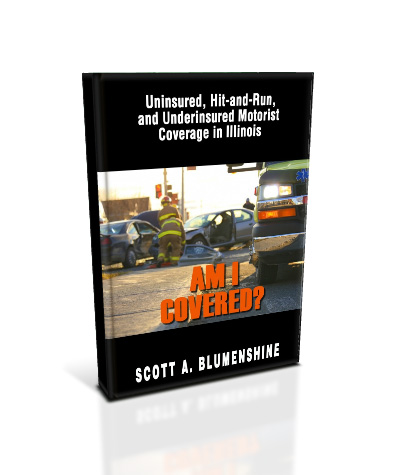The Illinois Appellate Court delivered a harsh rebuke to Liberty Mutual Insurance Company for delaying payments and failing to pay claims in two recent related decisions. Marque Medicos Archer, LLC v. Liberty Mut. Ins. Co., 2018 IL App (1st) 163350 (June 26, 2018) and Marque Medicos Archer, LLC v. Liberty Mut. Ins. Co., 2018 IL App (1st) 163351 (June 26, 2018). The Court also ordered the Clerk of Court to send a copy of its opinion to the Illinois Department of Insurance for the recommended action of determining whether Liberty was in violation of a stipulation and consent order.
In the Marque Medicos v Liberty Mutual cases, the Appellate Court reviewed allegations and evidence that Liberty Mutual Insurance Company had routinely failed and refused to pay for medical services provided by Marque Medicos to injured workers:
“Accepting the well-pled allegations of the providers’ complaint as true, Liberty’s conduct in (i) accepting premiums under a policy of insurance that renders it “directly and primarily liable” for benefits payable under the Act, (ii) authorizing a settlement agreement that plainly contemplates payment of those benefits, and (iii) claiming after the fact that no benefits are payable threatens the stability and predictability of benefits the Act is designed to provide. See McMahan v. Industrial Comm, 183 Ill. 2d 499 (1998), such conduct appears to be a textbook example of “vexatious and unreasonable” claims handling practices under section 155 of the Illinois Insurance Code (215 ILCS 5/155).”
Section 155 of the Illinois Insurance Code authorizes a court to award penalties and fees against an insurer for improper claims handling conduct.
The Court also reviewed the results of a prior Department of Insurance audit regarding Liberty Mutual Insurance Company’s claims handling practices. The Court noted this about the Department of Insurance Investigation:
“The Director of Insurance conducted a market conduct examination of Liberty’s claims handling practices specifically related to the payment of interest on adequately documented provider bills and that, as a result, Liberty entered into a stipulation and consent order whereby Liberty committed to institute and maintain procedures for the payment of interest. We take judicial notice here of the results of the market conduct examination.” See McMahan v. Industrial Comm
The Opinion contains a recommendation from the Court to the Department of Insurance:
“The Director of Insurance should pay close attention to whether Liberty is, in fact, living up to its obligations under the stipulation and consent order. To that end, we are directing the clerk of the court to send a copy of the opinion to the Director of Insurance.” See McMahan v. Industrial Comm
The Court opined that Liberty’s conduct appeared to be “egregious.” The Court reviewed the penalties which can be imposed on an insurer which unreasonably delays and denies payment in a worker’s compensation claim.
“And the fees and costs recovered by the employee as well as the employers’ own attorney fees and costs would be compensable damages proximately caused by the insurer’s breach of contract. In the end, the recalcitrant insurer would end up paying its own, its insured’s and the employee’s attorney fees and costs, plus whatever sums the court deemed appropriate under section 155. See 215 ILCS 5/155(1) (West 2012) (providing for an award of up to $60,000 in addition to attorney fees and costs). Accordingly, the price of an insurer’s decision to stonewall payment of benefits due under an IWCC award is, indeed, steep.”
The Opinion closes with the recommendation that counsel for injured claimants draft settlement agreements that contain the specific amount of outstanding medical bills that are to be paid by the employer and the employer’s insurer. Additionally, the Court recommends the settlement agreement contain the representation that the employer has consulted with its insurer, and secured the insurer’s commitment to pay the bills.
These decisions contain a direct and harsh criticism of an insurance company’s delay and denial tactics. The Court’s recommendation to the Department of Insurance to review the insurer’s claims handling conduct is notable. Such a rebuke by the Appellate Court, and direction to the State regulatory authority, in a published opinion, is a welcome development for insured citizens in Illinois. The fact that the Court scrutinized and chastised insurance company conduct is hopeful in that injured individual insureds often have precious little power to respond to insurance company delay and denial. The courts are typically the final resort for an exasperated insured who encounters insurer delay and denial.
The fact that the Appellate Court supplemented its Opinion with the Stipulation and Consent Agreement entered by the Department of Insurance is a clear message that insurance companies are on notice to fairly handle claims. Insurers may incur multiple due penalties and fees for unreasonable and vexatious claim delay and denial. The Appellate Court has clearly signaled its intolerance for improper delay and denial by insurers.


